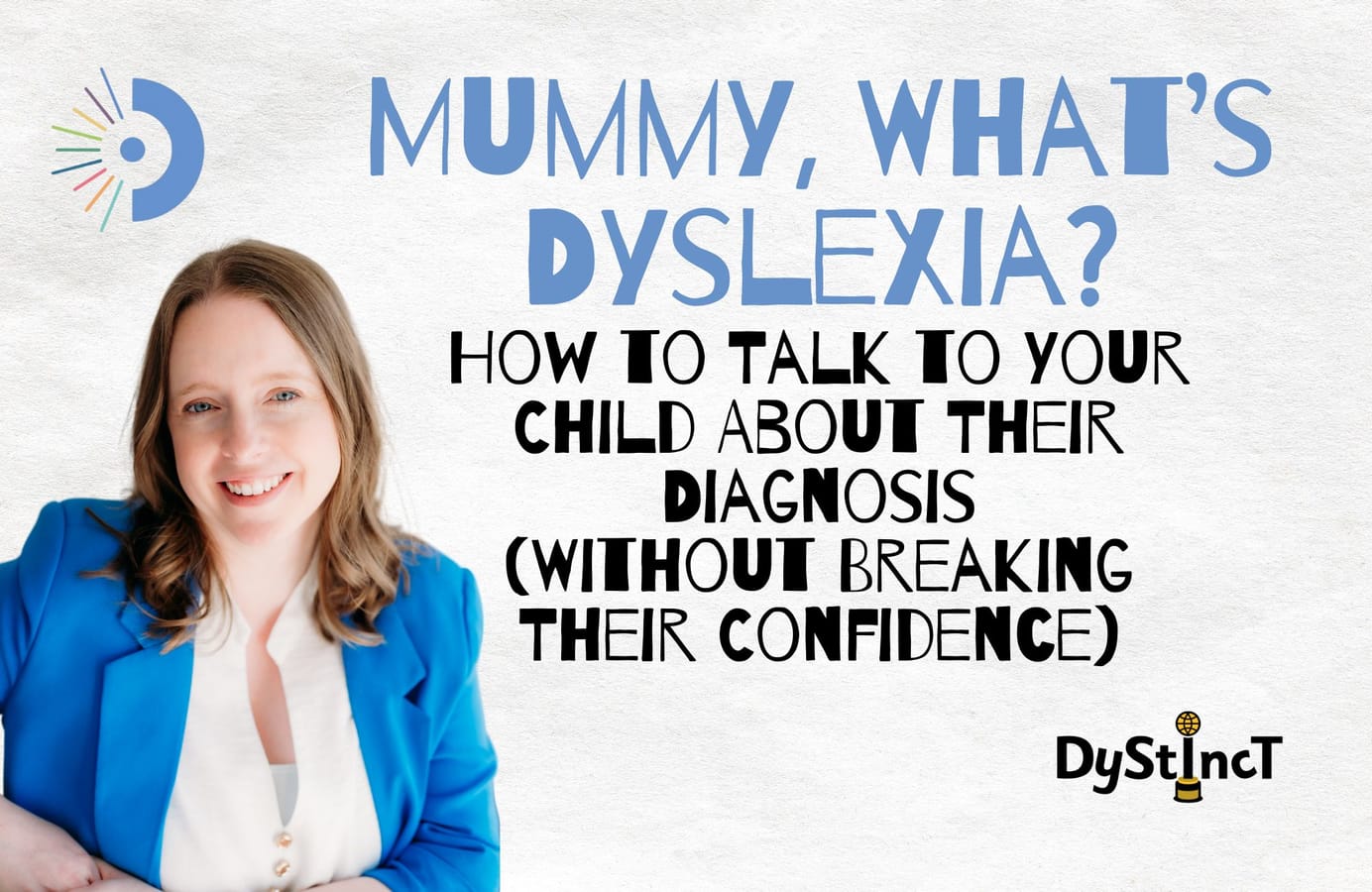
Issue 26: Mummy, What’s Dyslexia? How to Talk to Your Child About Their Diagnosis Without Breaking Their Confidence | Hannah Milton | Dyslexia LaunchPad
Hannah Milton, experienced teacher and dyslexia advocate, gently guides parents through talking to their child about a new dyslexia diagnosis, showing how honest, supportive conversations can build understanding and self-confidence from the very start.
You’ve just been told your child has dyslexia.
Maybe it’s something you’ve suspected for a while—those bedtime reading battles, the backwards letters, the endless homework struggles—but now that it’s official, you feel a bit stuck.
You know you need to tell them.
But what do you say?
You want to explain it honestly, but without making them feel like there’s something “wrong” with them. You want them to understand, but not to feel labelled. You want them to feel hopeful, not heartbroken.
As a teacher, a dyslexia specialist, and someone who’s dyslexic myself, I know how heavy this moment can feel for parents. You want to get it right. You want to protect their confidence. You want them to see their diagnosis not as a door closing, but as one just beginning to open.
Let’s slow things down and imagine how that first conversation with your child might unfold.
The Moment Before the Conversation
The Moment Before the Conversation
You might be sitting in the kitchen, watching your child draw, and wondering how to even start. Your head is full of questions.
What if they don’t understand? What if they take it badly? What if they stop trying? What if I make it worse?
But here’s what I want you to know: this conversation doesn’t have to be perfect. It just has to be kind.
Children pick up on tone more than anything. If you’re calm, accepting, and hopeful, that’s the message they’ll take away. Dyslexia won’t frighten them—because you haven’t made it frightening.
What Your Child Might be Thinking
What Your Child Might be Thinking
Even without the label, many children already sense they’re different.
They might have noticed that reading takes them longer, that they get tired quicker, that their friends can spell tricky words they can’t. Some children quietly carry the belief that they’re “stupid,” “slow,” or “just not good at school.”
When you explain their diagnosis well, you offer them something powerful: an answer.
You hand them the language to describe what they’ve been experiencing—and permission to stop blaming themselves.
How the Conversation Could Sound
How the Conversation Could Sound
It doesn’t need to be a sit-down, heavy talk. It can happen naturally—on a walk, during a car ride, or cuddled up on the sofa.
And it can sound something like this:
This post is for paying subscribers only
SubscribeAlready have an account? Log in


